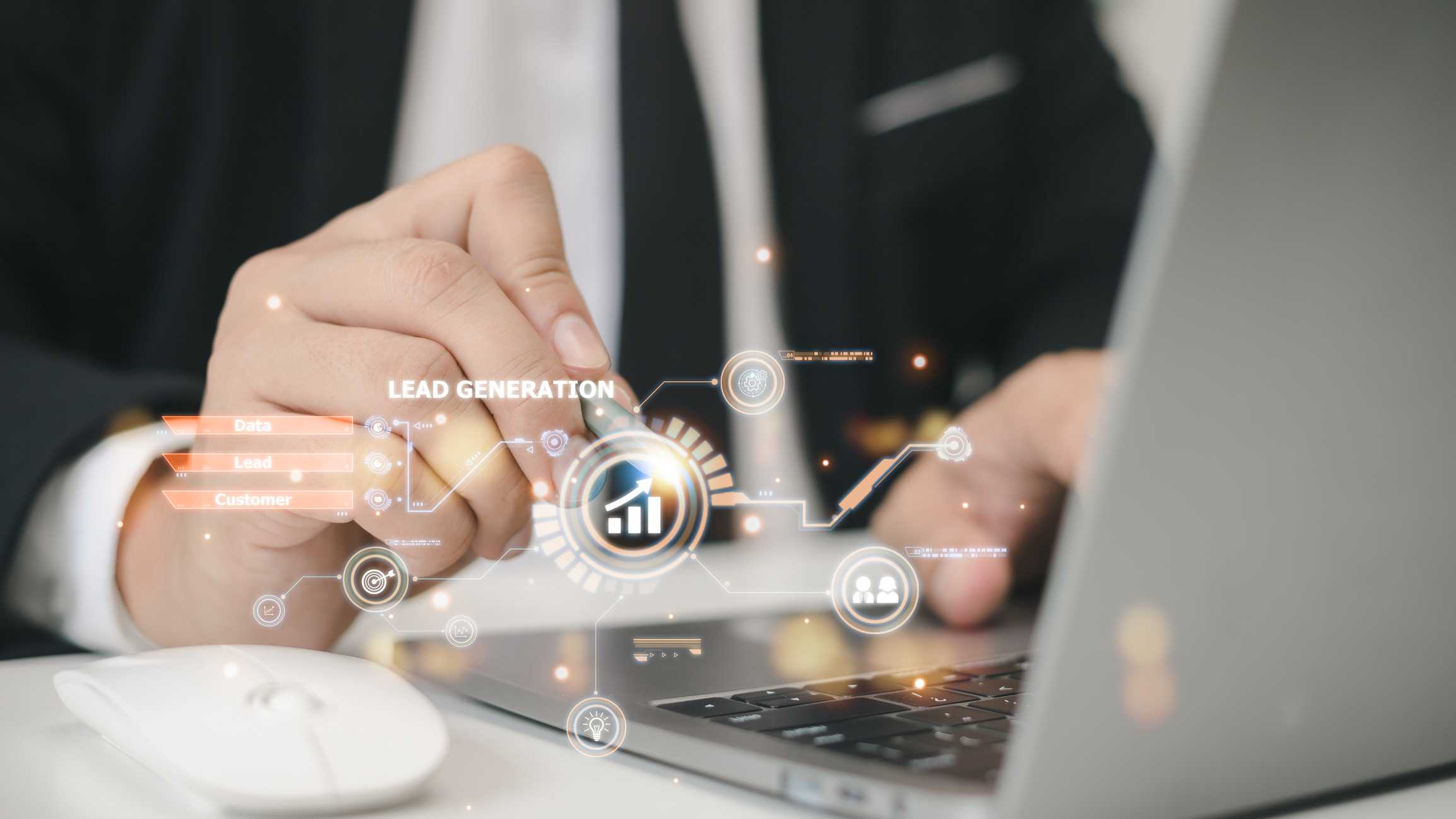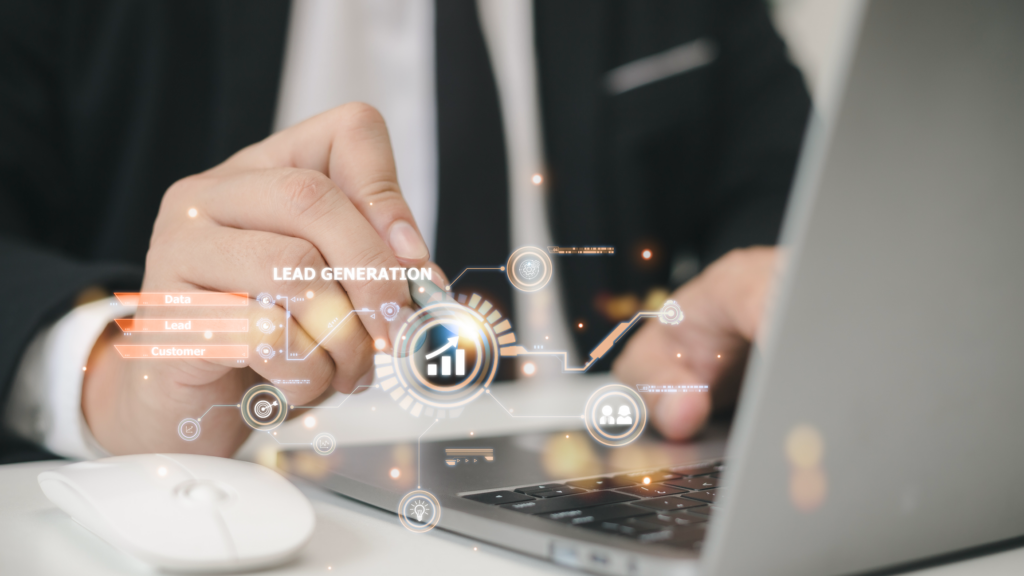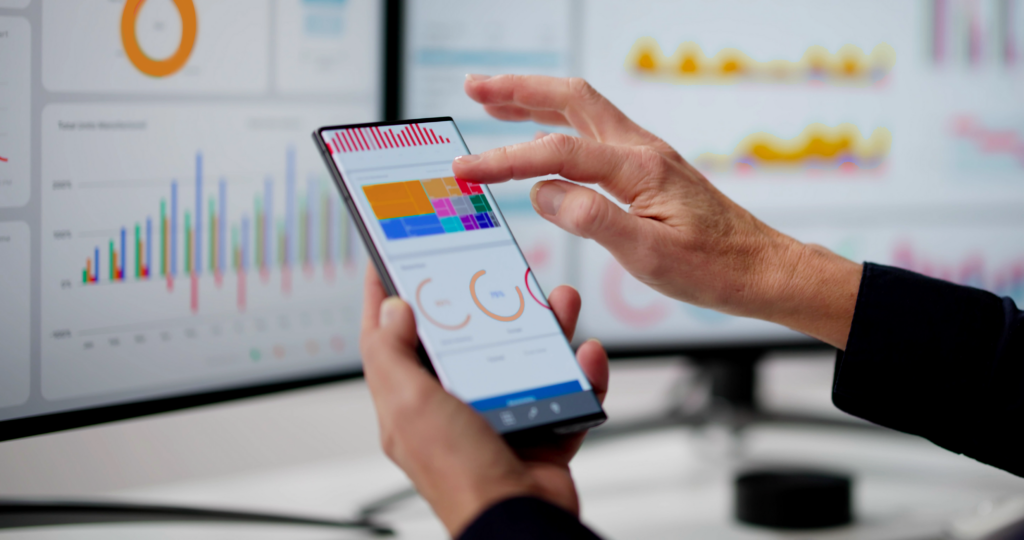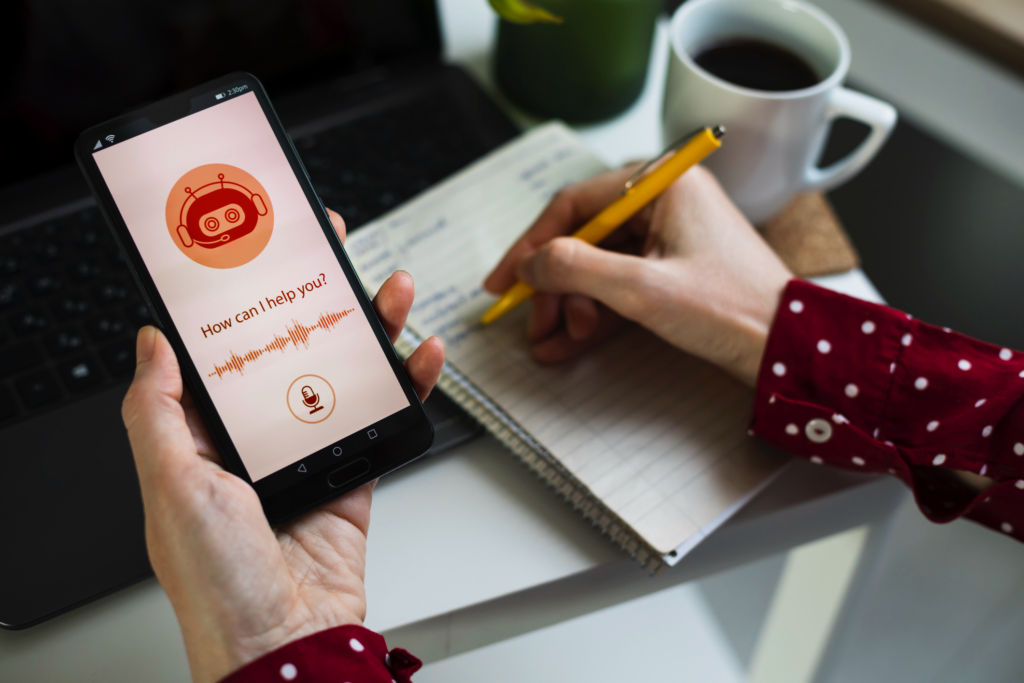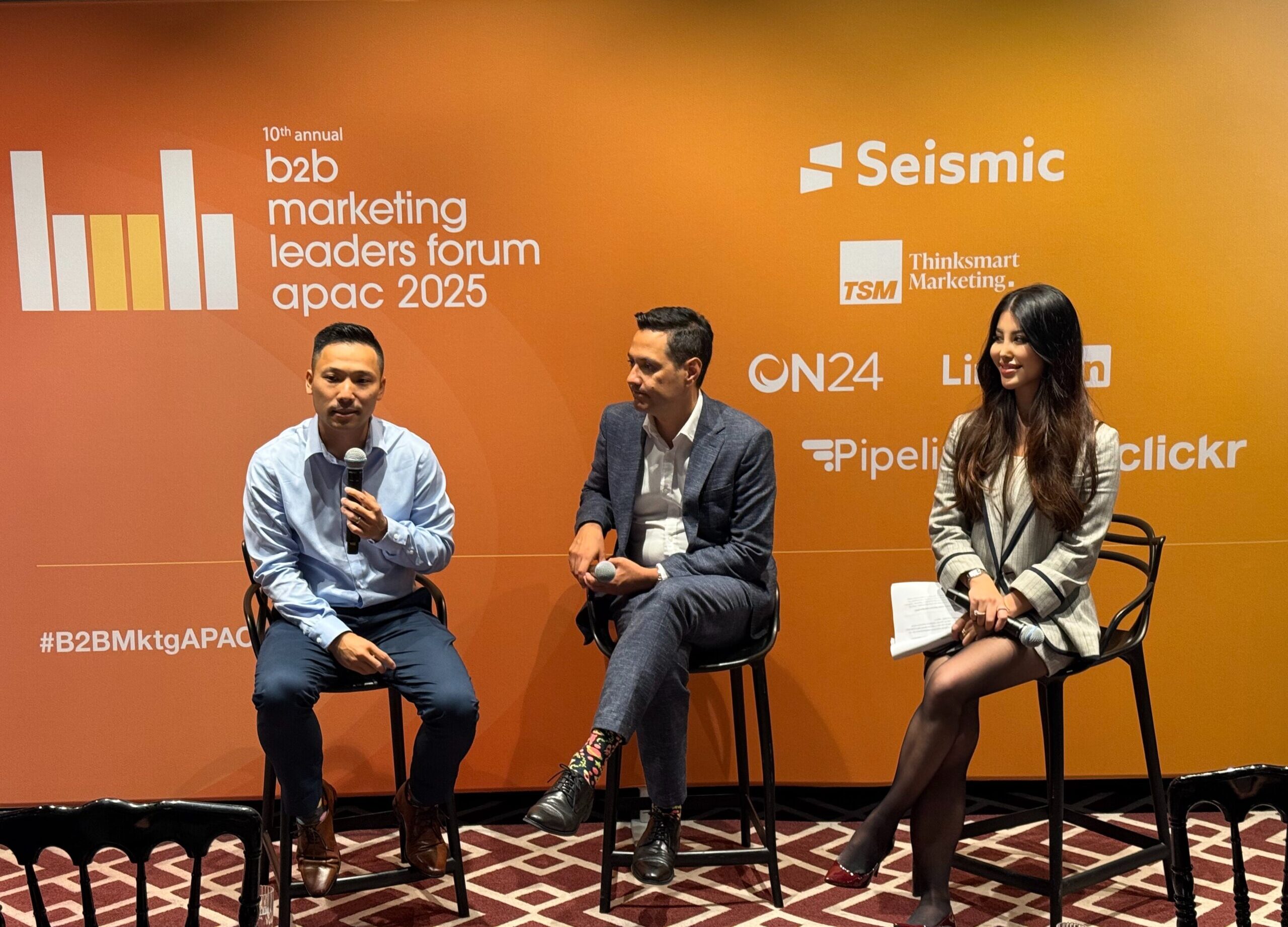In today’s competitive market, businesses need more than traditional methods to stand out. Advanced lead generation techniques that use AI are no longer just an option—they’re a necessity. But where should you start? What areas should you prioritise to maximise the impact of AI on your lead generation efforts?
Let’s explore how companies can enhance their strategies using these AI-powered techniques.
By the end of this article, you will learn about:
- What B2B lead generation is
- Why AI is crucial for modern lead generation
- The benefits of using AI to enhance business growth and lead generation
- Key areas where B2B companies can optimise their lead generation strategies with AI
- How predictive analytics can help identify market trends and allocate resources effectively
- The role of AI in enhancing audience targeting and personalising content
- The impact of AI-powered chatbots on initial customer engagement
- How predictive lead scoring can prioritise high-value leads for your sales team
What Is B2B Lead Generation?
B2B lead generation is all about finding and nurturing the right potential customers for your business. It’s not just a process – it’s the lifeline of your company. Without a strong lead generation strategy, your business could face significant challenges.
If you’re in the B2B space, your clients are other businesses. This means you need to identify and connect with the key decision-makers who would benefit from your product or service. Doing so often involves in-depth research to understand their unique business challenges and crafting tailored outreach to address those needs.
Why Is AI Important for Lead Generation?
With AI, companies can achieve unprecedented levels of efficiency and accuracy in their lead generation efforts, minimising human error. But why exactly is AI so crucial?
-
The Benefits of Using AI for Business & Lead Generation
By using AI tools for lead generation, businesses can significantly enhance the efficiency and effectiveness of their marketing efforts. By leveraging advanced algorithms and data analysis, AI can:
- Accurately identify and target high-potential leads
- Boosts conversion rates by delivering personalised content and offers.
- Enables businesses to automate repetitive tasks
Additionally, with real-time insights and predictive analytics, companies can proactively adapt their strategies to evolving market trends, maintaining a competitive edge and driving sustainable growth.
How AI-Powered Lead Generation Can Optimise Your Business
To fully harness the power of AI, B2B companies need to focus on several core areas. These include predictive analytics for market trends, enhanced audience targeting, content personalisation and recommendations, AI-powered chatbots for initial engagement, and predictive lead scoring. Each of these areas plays a critical role in creating a more effective and efficient lead generation process.
1. Predictive Analytics for Market Trends
One of the most critical aspects of lead generation is timing. Knowing when to allocate your advertising budget and sales efforts can make all the difference. Predictive analytics tools powered by AI allow companies to be proactive rather than reactive. By analysing historical data and market trends, AI can predict the best times to launch campaigns, optimise resource allocation, and refine sales strategies.
According to recent studies1, a staggering 95% of companies have integrated AI-powered predictive analytics into their marketing strategies. Of these, 44% have fully embraced it, making it a core component of their operations. This widespread adoption underscores the value that predictive analytics brings to the table.
HubSpot, a leading provider of inbound marketing and sales software, leverages predictive analytics to identify high-quality leads. By analysing data from multiple sources, such as website behaviour, email engagement, and social media activity, HubSpot scores leads based on their likelihood to convert. This approach has helped HubSpot and its customers improve lead generation efforts and increase conversions.

2. Enhanced Audience Targeting
Understanding your audience is the key to successful marketing. AI-driven social media insights and targeting empower B2B Software-as-a-Service (SaaS) companies to deeply understand and engage their audience.
By analysing social interactions and trends, AI tools can identify potential leads and tailor marketing strategies to resonate with them effectively. Major platforms like Facebook, LinkedIn, and Google are already using advanced AI-driven targeting methods, such as Facebook’s Advantage+ Targeting, LinkedIn’s Predictive Audience, and Google’s broad match keywords and signals.
Our research2 indicates that 47% of marketers trust AI with ad targeting, highlighting its growing importance. Salesforce for instance, uses its Einstein Analytics to help businesses analyse customer data and market trends. This enables more accurate audience identification, leading to significant improvements in marketing ROI, with some customers seeing a 25% increase.
3. Content Personalisation and Recommendations
Once you’ve identified your target segments, the next step is to tailor your content to their specific needs and preferences.
AI can analyse data to personalise content engagement strategies, ensuring that each piece of content resonates with its intended audience. This might involve creating tailored landing pages, personalised email campaigns, or customised product recommendations.
By monitoring user behaviour and interactions, AI can continuously refine and personalise the content to maximise engagement and conversion rates.
A 2023 survey3 by Influencer Marketing Hub revealed that 44.4% of marketers have used AI for content production. Additionally, AI is widely used2 in conversion optimisation (12.3%), predictive analytics (12.2%), and chatbots/customer service (11.7%).
These statistics highlight the growing reliance on AI for content personalisation and engagement.
Monday.com, a work operating system, needed to create content-driven customer journeys for multiple personas. To manage the high volume of content required, they turned to MarketMuse5, an AI-powered content creation tool. Over five months, Monday.com’s content team produced 500 articles, achieving a 25-position average rank improvement and a 1,570% increase in organic traffic.
4. Chatbots for Initial Engagement
Engaging potential leads early in their journey is crucial for successful conversion. AI-powered chatbots can engage website visitors 24/7, qualifying leads and gathering valuable information in the process. These chatbots provide round-the-clock engagement, capturing more leads and automating the initial lead qualification process. This automation frees up resources for high-value activities, such as personalised follow-ups and closing deals.
Our data6 indicates that 55% of companies using chatbots for marketing see an increase in high-quality leads. Bertling, a logistics and freight forwarding company, deployed a multipurpose Tars Chatbot Assistant to automate customer interactions. The chatbot achieved an interaction rate of 40.31% and converted 2 out of every 5 conversations into new business opportunities. This success demonstrates the transformative impact of AI-powered chatbots on customer engagement and lead generation.
5. Predictive Lead Scoring
Not all leads are created equal, and focusing on the most promising ones is essential for efficiency. AI’s predictive lead scoring evaluates prospects based on their likelihood of conversion, using vast data sets that include engagement patterns, demographics, and behavioural data.
Over time, the AI model improves as it learns from new data, providing increasingly accurate lead scores. This dynamic scoring process allows sales teams to prioritise leads more effectively, enhancing their overall productivity and success.
Based on a survey7 of sales teams using AI, 98% believe it improves lead prioritisation. Beefree, a platform for designing high-performing emails, faced the challenge of identifying customers likely to convert among millions of users and 15,000+ monthly sign-ups.
By integrating the Toplyne tool, Beefree’s sales team could qualify leads more effectively by detecting upgrade potential and intent. As a result, Beefree doubled the number of enterprise deals, reduced their sales cycle from 45 days to 30 days, and closed USD100k in deals within the first year of using Toplyne.
Now’s The Time to Enhance Your Lead Generation with AI
AI-powered lead generation offers businesses an opportunity to improve lead quality, enhance engagement, and personalise interactions like never before. As the business landscape continues to evolve, companies that leverage AI in their lead generation strategies will have a significant competitive advantage.
At Clickr, we understand the importance of AI in driving business success. Reach out to us and let’s explore together!
Frequently Asked Questions
What is lead generation?
Lead generation is all about finding potential customers and connecting with them. It’s a strategic process that helps businesses engage and nurture these prospects, guiding them along the way until they’re ready to become paying customers.
Does AI lead generation work for all types of businesses?
Yes, it does. AI lead generation is suitable to be used by businesses of all sizes ranging from startups to corporations.
What is Personalisation?
Personalisation is about customising content and experiences based on specific user data and behaviours.
What is Predictive Lead Scoring?
Predictive lead scoring refers to using a machine learning model which assigns scores to open leads by analysing previous data.
References:
- VentureBeat, (2022).
- Narrato, AI Content Marketing Statistics (2024)
- Influencer Marketing Hub, AI Marketing Benchmark Report (2024)
- MarketMuse, (2021)
- MasterOfCode, Chatbot Statistics (2024)
- Salesforce, State of Sales Report (2024)
